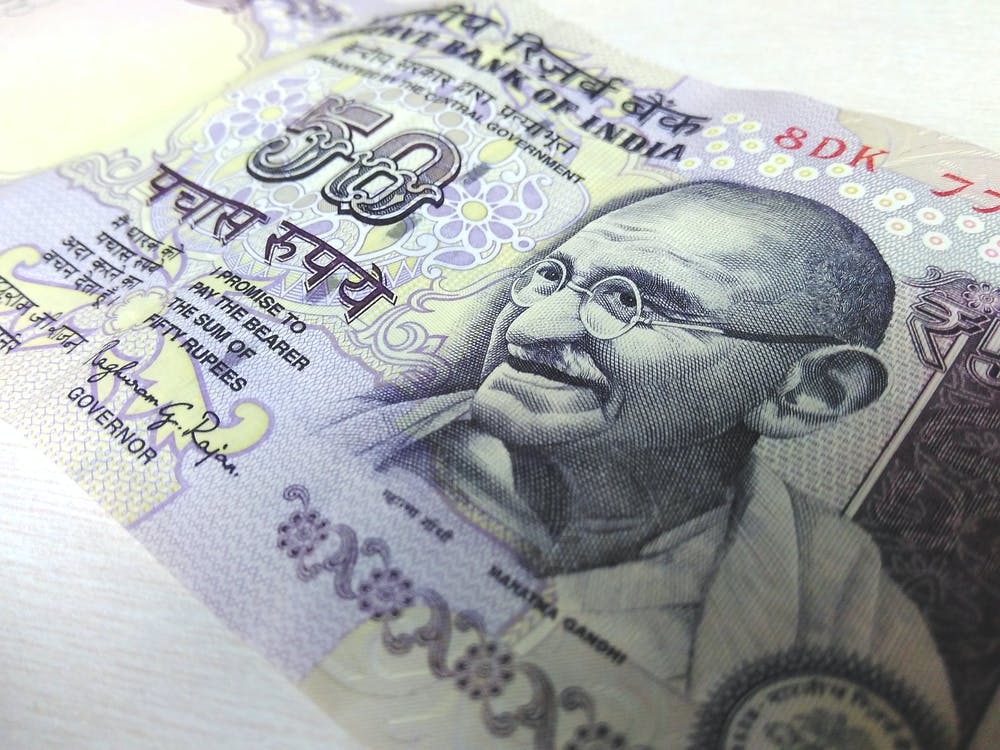Brokers With INR Accounts



Brokers with INR accounts make trading easier for Indian investors – minimizing currency conversions. In this article, we break down how Indian Rupee trading accounts work, their respective merits, plus tips on comparing top providers. We’ve also listed the best brokers with INR accounts in 2026.
How INR Accounts Work
When using an INR account, traders can deposit, withdraw and manage their account in Indian Rupees. Importantly, all fees and funds are denominated in Rupees and brokers are likely to be regulated by the Securities and Exchange Board of India (SEBI). Brokers with INR accounts are also likely to accept local payment methods that are free and easy to use for Indian investors.
All trading activity will be displayed in Indian Rupees. Everything from monthly statements to profits and losses will be listed in INR. If you were to deposit another currency, such as USD, it would automatically be converted into INR at the current conversion rate.

INR Currency Explained
The Indian Rupee (INR) is the official currency of India and is controlled by the Reserve Bank of India. While one Rupee does subdivide into 100 Paise, the lowest value of the coin in use since 2019 is one Rupee.
The history of the Indian Rupee began circa the 6th Century BCE. Ancient India was one of the first coin issuers in the world. However, the coin has not been in continuous use since then and at times India has had no fixed monetary system.
Sultan Sher Shah Suri’s silver coin, the Rupiya, was issued during his reign from 1540 to 1545 and became the precursor of the modern Rupee. The silver coin continued to be used through various periods, including in British India.
Today, the Indian Rupee is the fourth most-popular currency in the world, largely due to India’s huge population. As a result, there are various brokers with INR accounts, including Interactive Brokers.
Benefits of Brokers With INR Accounts
Reasons to sign up for an INR trading account include:
- Currency conversions: A key benefit of brokers with INR accounts is the lack of conversion charges when depositing or withdrawing using Indian Rupees. Other accounts would require conversion into a different currency, such as USD or EUR, which would incur a charge – cutting into the profit margins of Indian traders.
- Market access: INR accounts often provide straightforward access to Indian financial markets, including the National Stock Exchange of India. The top platforms also facilitate trading on forex pairs with the Rupee, including USD/INR, EUR/INR and JPY/INR.
- Sub-accounts: Some brokers offer INR sub-accounts. These allow you to deposit and withdraw in INR while still trading in another currency, such as USD.
- Demat accounts: INR brokers are more likely to offer Demat accounts – allowing you to hold certificates for securities in electronic form. This can make investing online easier, especially for investors in India and Nepal.
- Local payment methods: Brokers with INR accounts tend to support local payment methods that are built for seamless use with the Indian Rupee, such as RuPay.
Checking Brokers Offer INR Accounts
Brokers with INR accounts can be hard to spot. Fortunately, most brands state on their account section which base currencies are available, though you may have to check the sign-up section to see a list. If you still can’t see whether the firm offers an INR account, a useful tip is to check whether they offer local payment solutions – this can be a good indicator. Finally, you can always contact the customer support team for guidance.
Comparing Brokers With INR Accounts
We have collated a list of key comparison points when choosing between INR trading accounts:
- Fees: Check that fees for deposits, withdrawals and trading fit your budget. It’s also worth checking any minimum deposit requirements. Interactive Brokers, for example, require a $10,000 minimum payment so is more suited to experienced traders.
- Platforms: Ensure you understand all the tools and features available on the trading platform. Some brokers use MT4 and MT5, while others offer a bespoke product. Importantly, you may want to check whether the terminal offers user-friendly charting tools, automated trading bots or copy investing services.
- Regulation: The top brands are regulated by an Indian financial authority, such as the SEBI. The watchdog helps protect local investors and offers recourse options should a brokerage behave inappropriately.
- Assets: Some INR brokers specialize in forex trading with Rupee pairs while other brands offer leveraged trading on Indian stocks and shares. For investors interested in global markets, look for equities on US and European exchanges, plus major currency pairs. An increasing number of firms also provide access to emerging cryptos and commodities.
- Customer support: Traders may want to open an account with a provider that offers customer support in India’s official languages. This will make resolving account and technical issues easier.
- Bonuses: Some INR brokers offer welcome bonuses to new customers. These can come in the form of deposit bonuses, i.e. a 100% matching payment or a no deposit promotion, where accounts are debited with free trading capital. Just check withdrawal conditions before using a sign-up offer.
- Mobile application: A reliable mobile app will enable you to trade and manage your account wherever you are. The MT4 and MT5 platforms are both available free of charge on iOS and Android devices.
Bottom Line on Brokers With INR Accounts
Brokers that accept INR are designed with Indian traders in mind. They allow local investors to trade freely using Indian Rupees with no conversion fees. See our tips for comparing providers above. Alternatively, see our list of the best brokers with INR accounts in 2026 to start trading today.
FAQ
What Is An INR Account?
An INR trading account features the Indian Rupee as its base currency. Brokers issue all profit and loss statements in Rupees and will not charge conversion fees for deposits and withdrawals made in INR. Essentially, all trading activity is managed in Indian Rupees.
Should I Open An INR Account?
Brokers with INR accounts are suitable for investors regularly trading Rupees. They can facilitate easier transfers abroad as well as provide hassle-free access to local equity and forex markets, such as the National Stock Exchange of India and currency pairs with the INR, including the USD/INR and EUR/INR.
Which Is The Best Broker With An INR Account?
There is no universal best INR trading broker as it will depend on your needs. Instead, use our comparison points above to look at the various options. A demo account is also a good way to test brokerages before risking real cash.
Can I Combine GBP And INR Accounts?
Some brokers with INR accounts may allow you to open a sub-account with GBP. These allow you to deposit and withdraw in INR while still trading in GBP. These can suit forex traders that regularly buy and sell both currencies.
How Do I Check A Broker Offers An INR Account?
Brokers with INR accounts should make accepted base currencies clear on their website. If it is not obvious, you can check the FAQ page or speak with their customer support team.
